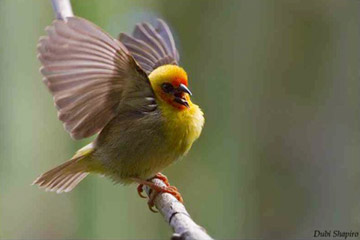Novel Ecosystems: Intervening in the New Ecological World Order
is a recent textbook published by Wiley-Blackwell edited by Richard J. Hobbs, Eric S. Higgs, and Carol M. Hall that describes the emerging issues around novel ecosystems. Novel ecosystems are rapidly developing globally in response to land conversion, climate change, invasive species, and other ecological crises. Novel ecosystems are anthropogenically modified ecosystems that have developed during the Anthropocene.
Novel Ecosystems: Intervening in the New Ecological World Order is the first comprehensive text to examine the various ecological, cultural, social, ethical, and policy issues surrounding novel ecosystems. Novel ecosystems are becoming increasingly prevalent in modern society, and we need to understand how to engage with and manage novel ecosystems responsibly.
Novel Ecosystems: Intervening in the New Ecological World Order includes a broad collection of case studies and an online free student companion website that includes chapter-by-chapter notes, PPTs, and other tools.
Discussing novel ecosystems does not mean we have given up on traditional ecological management and restorations strategies. Rather by describing what we observe as ecologists, and understanding that often what we observe is a novel ecosystem, we can employ traditional ecological management and restoration tools in a more informed manner.
 The Rodrigues fody. Photo by: Dubi Shapiro. |
For example, the Rodrigues fody (Foudia flavicans) lives in the Mascarene Islands and it is dependent on mature-stand forests. Its population was rapidly declining in the 1960s due to deforestation, forest clearing and forest degradation in response to economic pressures for land conversion to agriculture. Its population was saved from extinction by inhabiting stands of fast growing non-native trees. Now, if we cleared the land of these non-native tree species in an appropriate ecosystem restoration strategy, we might cause the extinction of the Rodrigues fody (Foudia flavicans).
In this context, we can describe novel ecosystems as composed of non-historical species compositions as a result of anthropogenic interference. As discussed in Novel Ecosystems: Intervening in the New Ecological World Order, what is important to understand is that in many novel ecosystems, traditional ecosystem restoration may cause harm to the endangered and threatened species whose populations we are trying to enhance. This is because in some cases endangered and threatened species are now becoming dependent on the non-native anthropgenically introduced species. Climate change is further multiplying these impacts exacerbating the difficult that many ecologists face to restore ecosystems because climate change often further increases the vectors – or pathways – for invasive species within novel ecosystems.
Novel Ecosystems: Intervening in the New Ecological World Order Is an excellent book for practitioners, students, and policy makers who want to understand novel ecosystems and have an applicable framework by which to apply ecosystem restoration within novel ecosystems.
How to order:
Paperback: Novel Ecosystems: Intervening in the New Ecological World Order
Publisher: Wiley-Blackwell
Editors: Richard J. Hobbs, Eric S. Higgs, and Carol M. HallBR>
ISBN: 9780691154275
Gabriel Thoumi, CFA is a globally recognized international climate finance expert and natural resources scientist.
Related articles
Journey to the Edge of Eden: the struggle to preserve Southwest Florida

(08/05/2013) Gary Schmelz, in a Journey to the Edge of Eden, takes us through a wonderful personal account of the conservation history of Southwest Florida. Journey to the Edge of Eden is one part personal memoir similar to the English naturalist Gerald Durrell and one part Florida conservation history. With hilarious stories of unintended naturalist misadventures and recounting conservation “as it happened,” a Journey to the Edge of Eden is one of those rare books you read in a coffee shop and with gusto and pride while laughing along out loud at Gary Schmelz stories.
Mammals of China – book review
(07/22/2013) China is home to greater than 10% of the Earth’s mammals. In the Mammals of China, Andrew T. Smith, PhD and Yan Xie, PhD have produced a comprehensive easy-to-read pocket guide to this outstanding biodiversity. Mammals of China is the first time that the natural history of all the mammals of China are included in a single pocket guide book resource.
The Warbler Guide – book review

(07/15/2013) Written by Tom Stephenson and Scott Whittle, with illustrations by Catherine Hamilton, The Warbler Guide by Princeton University Press is the “go-to” guide for identifying the 56 species of warblers in the United States and Canada. Warblers are notoriously difficult to identify. These champion singers are small, hidden amongst the tree top canopy, flighty and dancing from branch to branch, with variegated coloring blending greens, yellows, reds, browns, and grays.
All the world’s rarest birds in one book: photo contest enlivens new guide

(05/06/2013) The World’s Rarest Birds is an extraordinary bird book. 590 different bird species are classified as Endangered or Critically Endangered, with many species only existing in captivity. A new book, The World’s Rarest Birds, catalogs all of these species. Each species is shown with remarkable color-photography and illustrations. Threats to species habitat are described, population estimates per species are given, and each species has a quick response (QR) code that takes the reader to a species-specific BirdLife International webpage. The book also covers 60 Data Deficient species. Data Deficient means that there exists little to no information on the relative abundance and distribution of the species.